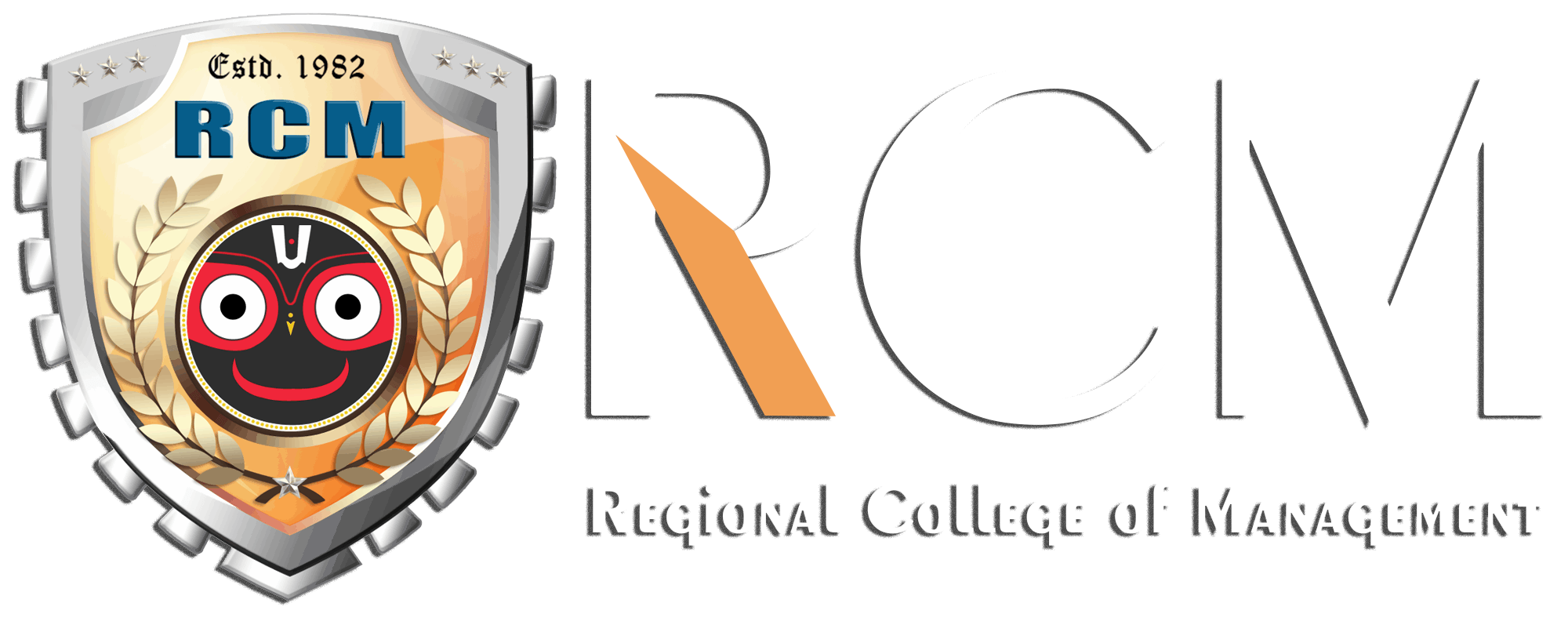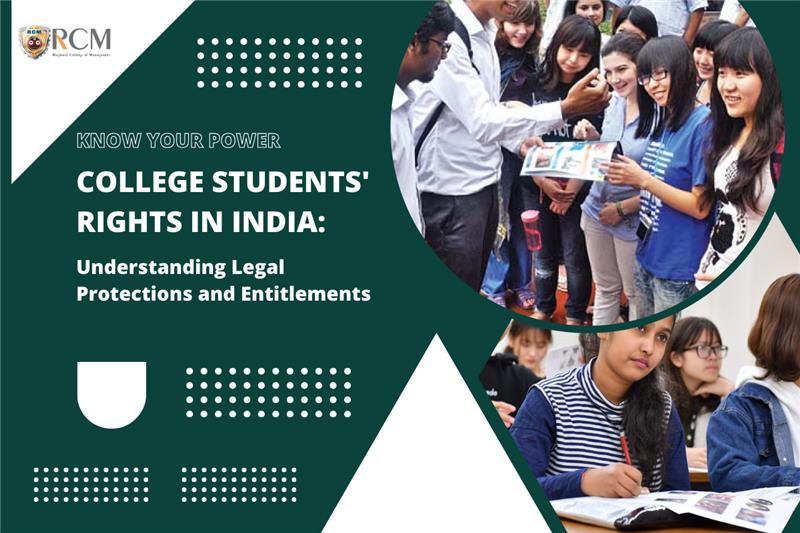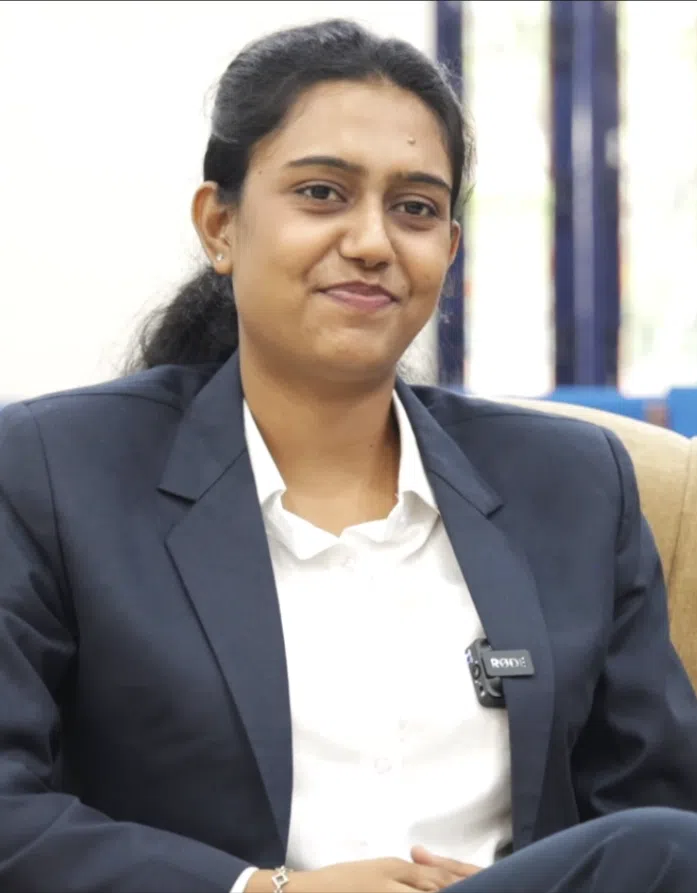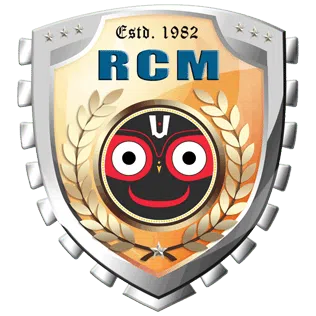Education is a fundamental right, and college students in India enjoy several legal protections that ensure their academic freedom, safety, and well-being. However, not all students are aware of their rights. This blog explores college students’ rights, including college students’ rights against teachers in India, legal rights of college students in India, and students’ rights in colleges in India. Understanding these rights is essential to safeguard students from unfair treatment and ensure a productive educational experience. (This content is for informational purposes only)
Legal Rights
The legal rights of college students in India are primarily derived from constitutional provisions, judicial pronouncements, and university regulations. Here are some fundamental rights that every student should be aware of:
- Right to Education – The Right to Education (RTE) Act, 2009, guarantees free and compulsory education up to 14 years. Although it does not cover higher education, public universities provide scholarships and reservations to promote accessibility.
- Right to Freedom of Expression – Students have the right to express their opinions and participate in discussions, debates, and student organizations within the legal framework.
- Right Against Discrimination – Article 14 of the Indian Constitution ensures equality before the law, prohibiting discrimination based on caste, gender, religion, or economic background.
- Right to Safety and Dignity – Harassment, ragging, and mental or physical abuse are strictly prohibited under the UGC’s anti-ragging regulations.
- Right to Privacy – Students have a right to their personal data and protection against unwarranted surveillance or intrusion by college authorities.
College Students’ Rights Against Teachers in India
While most teachers are committed to students’ well-being, instances of harassment or discrimination do occur. The college students’ rights against teachers in India include:
- Protection from Harassment – If a teacher verbally, physically, or sexually harasses a student, strict actions can be taken under the Prevention of Sexual Harassment Act and university regulations.
- Right to Fair Evaluation – Students can appeal if they suspect bias or unfair grading.
- Freedom from Coercion – No teacher has the right to force students to engage in non-academic activities or personal favors in exchange for grades.
- Right to Redressal – Grievance redressal mechanisms are available within universities and legal systems for students to report any faculty misconduct.
Students’ Rights in Colleges in India
The student’s rights in colleges in India encompass a broad range of entitlements:
- Right to Information – Colleges must provide transparent details about courses, fees, and policies.
- Right to Protest – Students have the right to peaceful demonstrations against unjust policies.
- Right to Mental Well-being – Colleges must provide counselling and support systems for students facing stress or psychological issues.
- Academic Freedom – No student should be restricted from choosing their subject of interest within the university framework.
College Student Punishment Rights in India
Disciplinary actions against students must align with legal and ethical standards. The college student punishment rights in India include:
- Right to Justified Punishment – Colleges cannot impose excessive penalties for minor infractions.
- Right to Appeal – Students can challenge any disciplinary action before the administration or legal authorities.
- Protection from Corporal Punishment – Physical punishment is strictly prohibited in educational institutions.
- Due Process – Before imposing suspension or expulsion, colleges must conduct fair hearings.
Financial Rights of College Students
The rights of college students in India extend to various aspects of student life, including academic freedom, safety, and financial security. Some critical rights include:
- Scholarship and Financial Aid Rights – Eligible students should receive proper access to government scholarships.
- Hostel and Accommodation Rights – Students in hostels have the right to hygienic living conditions and fair hostel fee structures.
- Right to Protection from Unfair Fees – Universities cannot arbitrarily hike fees without student consultation.
- Right to Accessible Education – Differently-abled students must be provided with accessible infrastructure and resources.
Students’ Rights in College
Apart from general rights, students’ rights in college in India focus on classroom interactions, internal assessments, and student representation. Key aspects include:
- Freedom to Question – Students can question and seek clarifications on academic matters.
- Right to Internal Complaints Committee (ICC) – Every college must have an ICC to address grievances related to harassment and misconduct.
- Right to a Fair Attendance Policy – Colleges should implement attendance policies that consider medical and emergency situations.
- Right to Internship and Placement Support – Universities must provide placement assistance and internship opportunities to students.
College Student Rights in India in Hindi
For Hindi-speaking students, understanding college student rights in India in Hindi is crucial. Universities and the government provide information on student rights in Hindi to ensure accessibility for a broader audience.
Some key rights in Hindi include:
- शिक्षा का अधिकार (Right to Education)
- अंतरात्मा और विचारों की स्वतंत्रता (Freedom of Thought and Expression)
- शारीरिक और मानसिक उत्पीड़न से सुरक्षा का अधिकार (Protection from Physical and Mental Harassment)
- निष्पक्ष परीक्षा और मूल्यांकन का अधिकार (Right to Fair Examination and Evaluation)
- छात्रवृत्ति और वित्तीय सहायता का अधिकार (Scholarship and Financial Aid Rights)
Conclusion
Understanding college students’ rights is essential for a safe and empowering educational experience. Whether it’s college students’ rights against teachers in India, legal rights of college students in India, or students’ rights in colleges in India, every student must be aware of their entitlements. If any student feels their rights are being violated, they should seek legal assistance, file complaints through college grievance cells, or escalate the matter to higher authorities.
By raising awareness about these rights, we can create a more transparent and just educational system that nurtures students’ growth and success.























